The jungle never lies. Its silence is heavy, its echoes eternal. Somewhere deep in Nigeria’s wilderness, where the shadows of palm fronds once framed the flicker of torchlights, a generation of young adventurers fought for glory in a game that was more than just television. It was the Gulder Ultimate Search (GUS) — the country’s most ambitious reality show, a cultural moment when endurance, wit, and courage meant more than beauty or scandal.
In the years between 2004 and 2012, and again during its brief revival in 2021, GUS was not just a show; it was an initiation. Millions of Nigerians sat before their televisions each evening, drawn into a spectacle that fused ancient warrior mythology with the unforgiving test of survival. The prize was not just cash or a car. It was immortality, however fleeting, in a nation that had never seen reality television tailored so fully to its own cultural soil.
But fame is a fragile crown. For every winner who found a way to ride the crest of visibility into acting careers or entrepreneurship, there were others who disappeared into the anonymity of the very cities that once celebrated them. Some became fitness coaches, others movie stars, and some vanished entirely, their names surviving only in trivia quizzes and nostalgic throwbacks on social media.
One winner was even murdered in the unforgiving chaos of Lagos, his story a tragic reminder that survival outside the jungle could be far crueler than anything the producers scripted.
This is not just a chronicle of winners. It is a mirror held up to Nigerian fame itself — sudden, blinding, but often short-lived. Gulder Ultimate Search produced champions, yes, but it also produced questions: What happens when the drums go quiet? Where do warriors go when the jungle falls silent?

The Birth of a Legend
In the early 2000s, Nigeria’s entertainment landscape was at a turning point. Nollywood was booming, churning out VHS films with dizzying speed, while Nigerian music — then powered by the rise of Afrobeats pioneers like 2face Idibia and D’banj — was beginning to find international ears. Reality television, however, was still an imported delicacy. Shows like Big Brother Africa had begun to test the waters, but they carried the sleek gloss of Western formats, less rooted in the Nigerian soil.
Enter Nigerian Breweries Plc, custodians of the Gulder lager brand, who saw an opportunity to marry branding with national storytelling. In 2004, they unveiled Gulder Ultimate Search, a reality series built not on the borrowed glamour of indoor cameras and staged romances but on the raw grit of Nigeria’s landscapes. Instead of plush houses with cameras in every corner, contestants were dropped into forests, rivers, and rugged terrains, where their survival instincts were tested in pursuit of a hidden treasure.
It was Nigeria’s own Survivor, but deeper. The show’s narrative voice was drenched in proverbs, riddles, and folklore. The jungle was not just a backdrop; it was a character, a stern elder that demanded respect. Contestants were warriors, not housemates. Challenges were framed like mythic quests — “The Task of the Broken Spear,” “The Passage of the Ancestors,” “The Circle of Fire.” And the prize, beyond cash and vehicles, was symbolic: a hero’s coronation, the kind that tied a modern Nigerian youth to the archetype of the village defender or hunter.
Audiences responded instantly. By the time the first winner, Ezeugo Egwuagwu, emerged in 2004, Gulder Ultimate Search had already transformed into a national obsession. Markets closed early in some towns so traders could catch the nightly broadcasts. Families gathered in living rooms, rooting for their favorites as though they were watching a cousin or a neighbor. Unlike the glitz of Western imports, GUS felt indigenous. It spoke Nigeria’s language — of endurance, cunning, and resilience.
The show’s success was also tied to its timing. The early 2000s were years of transition, with Nigerian youths searching for new symbols of aspiration. Footballers and musicians were idols, yes, but here was a new kind of hero — everyday people elevated by strength, strategy, and grit. For once, fame wasn’t about singing or scoring goals; it was about outlasting hunger, conquering fear, and solving riddles in the mud.
Over the years, the show’s locations became legendary: the murky rivers of Shere Hills, the eerie forests of Usaka, the treacherous rocks of Obudu. Each season was a new myth written into the Nigerian imagination. The jungle was vast, but the fame it offered was narrow, reserved for a single champion each year.
And so began the saga of the GUS winners — warriors in the wild, celebrities in the city, survivors in name, but not always in fate.
Fame in the Forest
The jungle of Gulder Ultimate Search was no ordinary stage. It was both opponent and teacher, a place where every fallen tree, every river crossing, every Torchlight night became part of the contestants’ initiation. For Nigerians watching at home, the appeal was not just in seeing young men and women endure the wilderness. It was in seeing themselves mirrored in a struggle that looked familiar — the battle for survival in a country where resilience was as vital as bread.
I) The Ritual of the Night Fire
Every episode carried a rhythm. By day, contestants wrestled with the forest, trudging through marshes, building rafts, or solving puzzles with the weight of exhaustion pressing down on their backs. By night, they gathered around the blazing campfire, their faces carved by flickering flames, waiting for the Council of Elders or the Taskmasters at different seasons, Bob Manuel, Chidi Mokeme, to deliver verdicts.

Unlike other reality shows, eliminations here felt more like exile than eviction. Contestants did not leave to applause or hugs; they were escorted out, torches extinguished, faces solemn. The jungle swallowed them in silence. To stay in the game was to remain alive. To leave was to vanish into obscurity. The metaphors were obvious, but powerful: survival wasn’t just about muscle — it was about willpower, strategy, humility, and sometimes, sheer luck.
II) Why Nigeria Fell in Love
The country connected with Gulder Ultimate Search because it felt raw and authentic. The tasks drew from cultural symbols — hunters’ trails, ancestral wisdom, the archetype of the warrior. The narrative voiceover spoke like a griot, using proverbs to bind the story together.
Where Big Brother Naija would later captivate audiences with scandal and glamour, GUS was stripped down, almost ascetic. No designer clothes, no flashy parties — just mud, sweat, and resilience. Parents who disapproved of the voyeurism of other reality shows often encouraged their children to watch Gulder Ultimate Search. For once, entertainment seemed morally defensible: it celebrated discipline, courage, and teamwork.
The show was also deeply Nigerian in its unpredictability. Contestants faced not only the challenges of the producers but also the cruelty of the elements: sudden rainstorms that drenched them for days, swarms of mosquitoes, injuries with no immediate medical relief. For those watching at home, it was as if reality TV had finally come home, stripped of artifice, clothed in the familiar harshness of African survival.
III) The Pressure of Survival
Yet behind the televised adventure lay a psychological strain that most viewers underestimated. Hunger gnawed constantly; contestants often spoke later of surviving on watery porridge, roasted plantains, and whatever scraps the show allowed. The nights were worse. The forest was alive with sounds — the snapping of branches, the cry of distant animals, the unsettling silence that seemed to whisper, “You do not belong here.”
Contestants formed alliances, but trust was fragile. Every companion was also a rival. Strategies shifted like river currents; some played the game by being silent workhorses, others by commanding leadership. The fear of failure was omnipresent, especially with the knowledge that millions of Nigerians were watching. Fame was not just a prize at the end; it was already present, shaping their behavior, burning into their consciousness like the fire around which they sat each night.
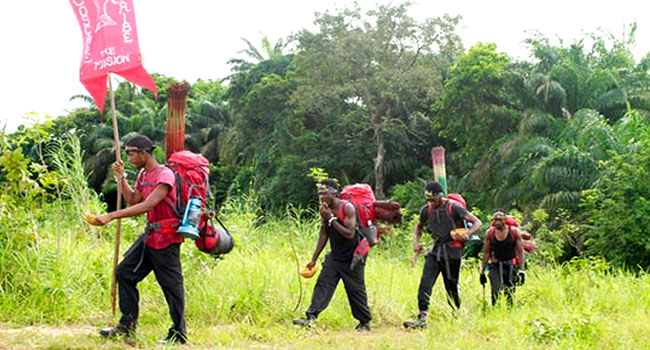
IV) The Making of Folk Heroes
By the end of each season, one contestant stood tall, hoisting the symbolic treasure chest or relic that marked victory. These were not just winners; they were folk heroes, thrust into the national spotlight as embodiments of resilience. For days and weeks after, newspapers carried their photos, radio stations interviewed them, and billboards branded them as ambassadors of endurance.
But the jungle, as it turned out, was far kinder than the city. The same fame that lifted them often dissolved within months, leaving them to grapple with the silence of obscurity. In the jungle, survival meant pushing through hunger and fatigue. In the city, survival meant navigating industries that did not know what to do with reality stars, a culture that quickly moved on to new distractions, and a society that valued endurance only when it was televised.
The irony was painful: in conquering the forest, many discovered that their greatest battle lay ahead — not in the wilderness, but in the world beyond.
And so, the legend of Gulder Ultimate Search cannot be told without its victors. Each name is a chapter, each face a story of triumph, struggle, and in some cases, tragedy. To trace their paths is to trace the arc of Nigerian fame itself — brief, bright, and often swallowed by the shadows of silence.
The Winners’ Circle: Rise of the Jungle Kings and Queens
The legacy of Gulder Ultimate Search is not written in the thick vines of the forests where its challenges unfolded but in the lives of those who once carried its torch. Each winner stepped out of the jungle with the weight of expectation on their shoulders — crowned as symbols of endurance, resilience, and youthful ambition. But where the jungle offered certainty — clear tasks, firm rewards — life beyond the spotlight was murkier.
Some turned their fleeting fame into stepping stones for careers in Nollywood, fitness, or media. Others disappeared quietly, their names surviving only in nostalgic whispers. A few encountered tragedy. Together, their stories form a collective parable about Nigeria’s volatile relationship with celebrity.
Season 1 (2004) — Ezeugo Egwuagwu: The First Warrior

The beginning of the GUS saga belonged to Ezeugo Egwuagwu, the inaugural winner who etched his name into history as the first to conquer Nigeria’s jungle quest. His victory set the tone: a young man, unknown the day before, suddenly transformed into a national hero.
The reward — five million naira and a brand-new SUV — was a fortune at the time. Newspapers splashed his face on their covers, and brands sought him for appearances. Yet, as with many trailblazers, his fame was brief. Nigeria had no blueprint for sustaining reality TV winners, and by the time Season 2 began, Egwuagwu’s name was already fading.
Today, little is publicly documented about his life after GUS. He receded into near-anonymity, a symbol of how fragile early reality TV fame could be. His story reminds us that being first is not always the same as being forever.
Season 2 (2005) — Lucan Chambliss: The Silent Strategist

If Ezeugo embodied the excitement of novelty, Lucan Chambliss embodied the calm of calculation. Known for his quiet resilience and strategic gameplay, Chambliss outlasted his rivals to become the second GUS champion.
His win was celebrated, yet he, too, chose life away from the cameras. Unlike some of his successors who chased Nollywood fame, Chambliss preferred a quieter path. Over time, his name slipped from headlines, swallowed by the tide of newer winners.

Today, he remains largely absent from public life, a reminder that not every warrior seeks the crowd’s applause.
Season 3 (2006) — Hector Joberteh: The Tragedy of a Hero
No GUS winner’s story is more heart-wrenching than that of Hector Joberteh. A fan favorite during the third season, Hector’s charisma and determination carried him to victory. Nigerians loved him not just for his endurance but for his warm, approachable personality.

After his win, Hector attempted to build a career in entertainment. He dabbled in modeling, appeared in commercials, and briefly courted Nollywood opportunities. Yet life after GUS was not as stable as the public imagined.
In September 2017, tragedy struck. Hector was shot dead in his Lagos home in what police later described as a suspected targeted attack. He was only 38. The news shocked Nigerians who still remembered his jungle triumph more than a decade earlier.
For many, Hector’s death marked a dark chapter in the GUS legacy — a sobering reminder that survival in the real world can be more brutal than the harshest forest task.
Season 4 (2007) — Dominic Mudabai: From Warrior to Wellness Coach
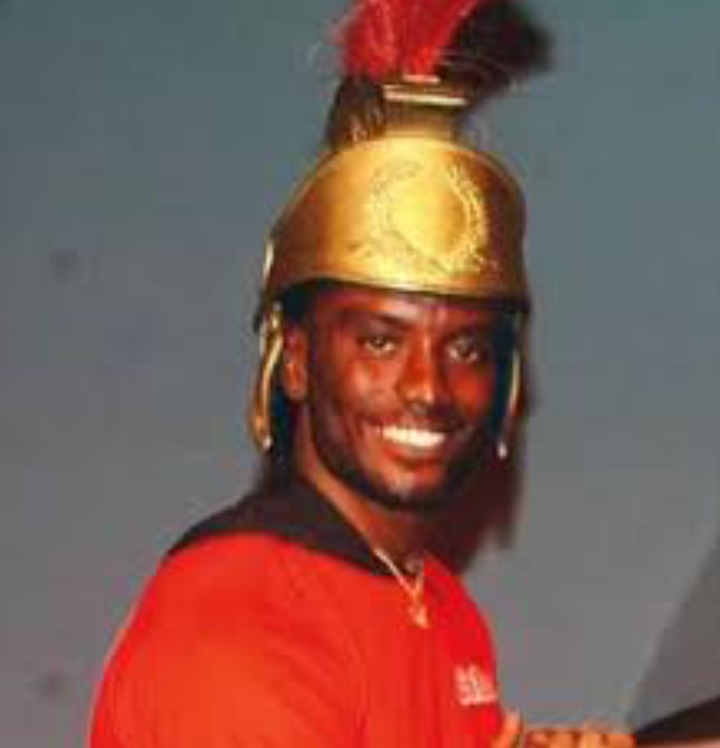
Tall, athletic, and determined, Dominic Mudabai captured Nigeria’s imagination in Season 4. His victory brought him instant recognition, and unlike some winners before him, he sought to extend his brand.
Dominic moved into fitness and wellness, becoming a lifestyle coach and gym instructor. Over the years, he built a reputation in Lagos as a promoter of healthy living, often leveraging his GUS fame as part of his narrative.

Unlike Egwuagwu or Chambliss, Dominic found a sustainable niche. He remains one of the better-known winners, living proof that reality TV stardom could indeed be converted into a career with discipline and reinvention.
Season 5 (2008) — Michael Nwanchukwu: The Forgotten Champion

When Michael Nwanchukwu emerged as the victor of Season 5, Nigerians celebrated yet another jungle king. But fame is a fragile thing.
Michael’s post-show trajectory was quieter than expected. He made brief media appearances, but the spotlight soon shifted to newer winners. Today, little is known of his current endeavors. For many fans, his name is remembered only in lists of past champions, a shadow of what once seemed a bright career.
Season 6 (2009) — Uche Nwaezeapu: The Actor Who Emerged from the Jungle

For Uche Nwaezeapu, GUS was not an endpoint but a launchpad. Crowned champion in 2009, Uche leveraged his victory into a career in Nollywood. He featured in several television dramas and films, gradually carving out a space for himself in the entertainment industry.
While he never reached the superstardom of some contemporaries, Uche remains one of the few GUS winners who successfully transitioned from reality fame to acting. His story stands as a testament to persistence, proving that jungle fame can be the first chapter in a longer narrative.
Season 7 (2010) — Kunle Remi: Nollywood’s Jungle Prince
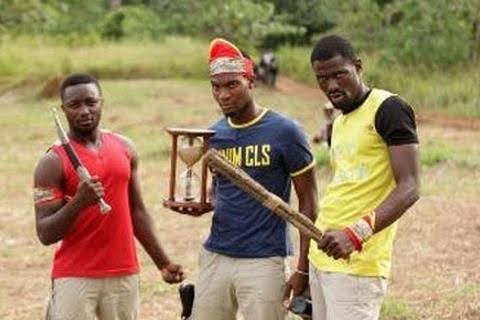
If Gulder Ultimate Search produced a star who outshone the jungle itself, it was Oyekunle Oluwaremi, popularly known as Kunle Remi. His Season 7 triumph was a turning point not just for the show but for Nigerian reality television as a whole.
Handsome, charismatic, and ambitious, Kunle parlayed his GUS victory into a thriving Nollywood career. He has since starred in blockbusters, collaborated with leading directors, and become one of the most recognizable faces of his generation. Unlike many winners who struggled for relevance, Kunle made the leap seamlessly, proving that jungle survival could indeed birth lasting stardom.
In 2023, he captured even more attention with lead roles in major Nigerian films, cementing his status as GUS’s most successful alumnus. Today, when Nigerians recall Gulder Ultimate Search, Kunle Remi’s name often rises first.
Season 8 (2011) — Christopher Okagbue: Model, Actor, Star
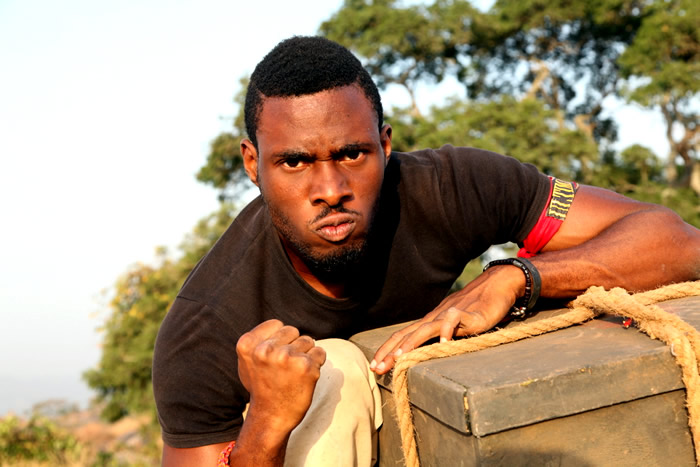
Following in Kunle’s footsteps, Christopher Okagbue became another GUS graduate who successfully transitioned to Nollywood. A model and actor, Christopher used his victory as a springboard, later featuring in popular TV series and films.
Unlike many who vanished, Christopher sustained his relevance in entertainment, balancing modeling gigs with acting roles. Though not as dominant as Kunle, his steady career has kept his name alive in Nigeria’s entertainment conversation.
Season 9 (2012) — Pascal Eronmose: The Vanishing Winner
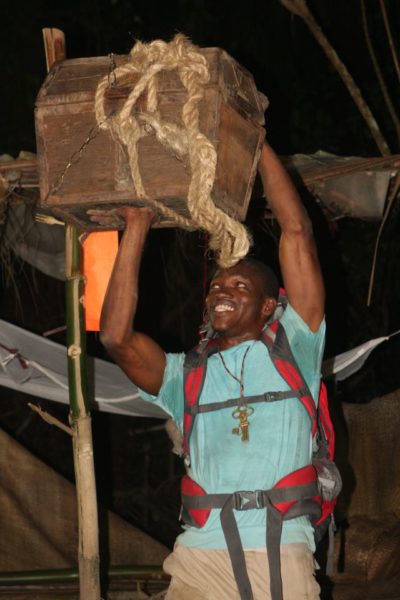
By the time Pascal Eronmose won Season 9, Gulder Ultimate Search was nearing its original sunset. The show still commanded loyal fans, but its cultural dominance was waning.
Pascal’s win gave him the brief glare of publicity, but his post-show trajectory mirrored that of earlier champions like Michael Nwanchukwu — a fade into obscurity. Today, little is publicly known about his activities, a reflection of how ephemeral reality TV fame can be when not followed by reinvention.
Season 10 (2021 Revival) — Odudu Otu: The Comeback Kid
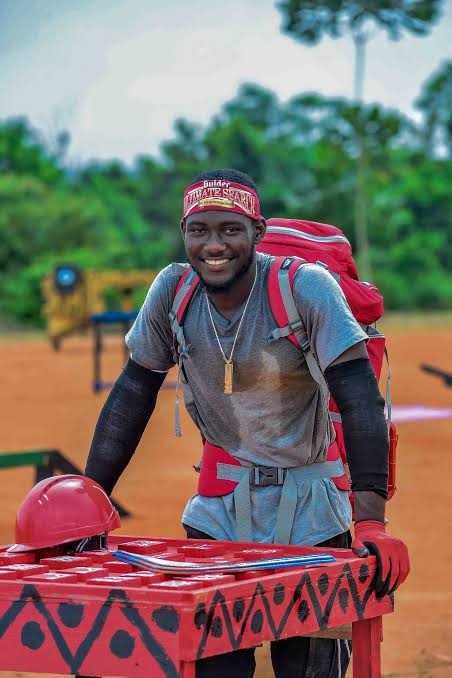
After nearly a decade off air, Gulder Ultimate Search returned in 2021, rebranded and modernized. Its new champion, Odudu Otu, was hailed as the “comeback kid,” embodying a revival of nostalgia for the once-great franchise.
Odudu’s win stirred excitement, but sustaining relevance proved challenging. Unlike the 2000s, Nigeria in the 2020s was dominated by Big Brother Naija, TikTok influencers, and Afrobeats stars. Odudu’s victory did not carry the same cultural weight as those of Kunle Remi or Dominic Mudabai.
Today, he remains active on social media and in small-scale engagements, but the jungle crown has not yet translated into enduring stardom. His story is still being written — a reminder that in modern Nigeria, reality TV fame is more fragile than ever.
Life After the Jungle
For the warriors who once held Nigeria spellbound, the jungle was both coronation and curse. To win Gulder Ultimate Search was to touch a kind of immortality — one season of endurance etched permanently into national memory. Yet, when the drums stopped beating and the cameras packed up, what remained was often silence.
The irony was sharp: surviving snakes, hunger, and rivalries on screen was easier than surviving the quiet months afterward, when the world moved on and the crown of visibility began to rust.
The Fragility of Nigerian Reality Fame
In countries with mature entertainment industries, reality TV winners often slot into well-paved pipelines. A Survivor winner in the U.S. might pivot into motivational speaking, book deals, or long-term media appearances. A Love Island contestant in the UK might slide into brand influencing or podcasting. But Nigeria in the mid-2000s had no such machinery.
The entertainment economy was still fragmented. Nollywood was prolific but informal, lacking structured entry points. Social media had not yet exploded into the influencer economy we know today. Reality stars were heroes without a stage, champions without an afterlife.
For many GUS winners, their fame was like fireworks — brilliant, loud, dazzling, but over too quickly. Ezeugo Egwuagwu faded almost immediately. Lucan Chambliss chose obscurity. Michael Nwanchukwu’s light dimmed. Even Dominic Mudabai, who reinvented himself in fitness, admitted through his career path that one had to forge a new lane to survive.
The system did not know what to do with them, and so Nigeria did what it often does with novelty — it celebrated briefly, then forgot.
The Tragedy That Haunted the Franchise
The story of Hector Joberteh remains the most haunting illustration of this fragility. His murder in 2017 — more than a decade after his victory — shocked Nigerians not just because a former reality TV winner was killed, but because it forced the country to confront a painful truth: fame does not shield anyone from Nigeria’s urban violence.
For fans who remembered him as the smiling, resilient jungle champion, Hector’s death felt like a betrayal. The forest had spared him, but the city did not. In the lore of Gulder Ultimate Search, his story stands as a tragic punctuation mark — a warning about the precariousness of both celebrity and survival.
The Few Who Crossed Over

Out of the twelve seasons, only a handful of winners managed to build enduring careers. Chief among them was Kunle Remi, who broke free of the “reality star” label to become a legitimate Nollywood force. His story was exceptional not because of luck alone, but because he entered the show with performance instincts, discipline, and a vision beyond the prize money.

Similarly, Christopher Okagbue leveraged his win into modeling and acting gigs, while Uche Nwaezeapu also carved out a steady Nollywood path. These men demonstrated that the jungle could be a gateway — but only for those with the right combination of talent, connections, and persistence.
Most others lacked either the networks or the industry to sustain their visibility. Odudu Otu’s 2021 revival victory highlighted this truth in stark relief: in an era dominated by Big Brother Naija, Instagram, and TikTok, even winning GUS could not guarantee long-term relevance.
Why Endurance Didn’t Translate
The paradox of GUS winners lies in the difference between the skills needed to survive the jungle and those needed to survive Nigerian celebrity culture.
- In the jungle, endurance, teamwork, problem-solving, and grit mattered most. The tasks were hard, but they were structured; contestants knew what was expected, and victory meant clear rewards.
- In the city, survival required connections, branding savvy, and an ability to remain visible in an industry that devours novelty. The jungle had elders guiding the game; the city offered no such mentors. The jungle rewarded merit; the city often rewarded spectacle.
In other words, the very qualities that crowned them kings and queens in the forest did not always translate to the urban battleground of media and entertainment. Fame in Nigeria required not just strength but spectacle — scandal, charisma, or industry patronage. Without those, even jungle heroes could be forgotten.
The Cultural Weight of Silence
Over time, silence became the unspoken legacy of Gulder Ultimate Search. Silence in the lives of its forgotten winners. Silence in the gap between the show’s nostalgic memories and its absence on TV screens for nearly a decade. Silence, too, in the way Nigerian society moved on without giving its champions a lasting stage.
For fans, the silence became a ghostly echo. People remembered watching with their families, rooting for contestants, feeling national pride in a show that felt “ours.” But when they asked years later, Where are those winners today?, the answers were vague. Some had become fitness instructors, some actors, some gone entirely. The jungle drums had faded, and in their place was a void.
Lessons in Survival Beyond the Wild
Yet even in their obscurity, the GUS winners teach something about resilience. They remind us that survival is not a single moment but a lifelong practice. Some survived by reinventing themselves. Others by retreating from fame and choosing anonymity. A few, like Hector, became martyrs of fate.
If the jungle was a metaphor for Nigeria itself, then the winners’ afterlives were parables about the country’s challenges: fleeting recognition, lack of structures, brilliance unbacked by continuity. They showed us that Nigeria knows how to celebrate victory, but not always how to preserve its victors.
The Return of Memory: Why They Still Matter
Even in their absence, the winners of Gulder Ultimate Search matter. They remind Nigerians of a time when the country gathered around a single story, when adventure could distract from economic despair, and when hope could be personified in the image of an ordinary youth finding a hidden chest in a forgotten jungle.
They also embody resilience, the kind that Nigerians know too well: navigating unstable careers, uncertain futures, and a system that does not always reward effort. Whether they stayed in the spotlight or faded into silence, their stories intersect with the national story—dreaming big in a land where survival is often the greater prize.

The Final Echo
In the end, the question—where are the winners of Gulder Ultimate Search today?—is not only geographical, but spiritual. They are in gyms, on film sets, in quiet towns, in family homes, and, tragically, in graves. They are scattered, like echoes of a once-mighty roar, their jungle voices now swallowed by city silence.
Yet, each time their names are recalled, each time old clips resurface on social media, the echo grows louder. Because Gulder Ultimate Search was never only about who found the treasure—it was about who dared to enter the jungle.
And in daring, they etched their names, however faintly, into Nigeria’s cultural memory. The jungle is silent now, but the winners remain, not as forgotten ghosts, but as fragments of a shared past that still flickers whenever nostalgia calls.





